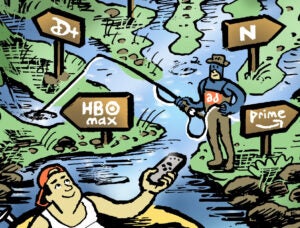PRESS RELEASE
Urge FTC to Develop Rules to Protect Consumer Privacy in the New Personal Data Marketplace
Washington, DC: In a complaint filed today with the Federal Trade Commission, the Center for Digital Democracy, U.S. PIRG, and the World Privacy Forum challenged the commission to investigate the growing privacy threats to consumers from the practices conducted by the real-time data-targeting auction and exchange online marketplace. Increasingly and largely unknown to the public, technologies enabling the real-time profiling, targeting, and auctioning of consumers is becoming commonplace. Adding to the privacy threat, explains the new complaint, is the incorporation and expanding role of an array of outside data sources for sale online that provide detailed information on a consumer.
“This massive and stealth data collection apparatus threatens user privacy,” the 32-page filing explains. “It also robs individual users of the ability to reap the financial benefits of their own data—while publishers, ad exchangers and information brokers … cash in on this information.” Among the companies cited in the complaint are Google, Yahoo, PubMatic, TARGUSinfo, MediaMath, eXelate, Rubicon Project, AppNexus, and Rocket Fuel. The complaint also cites the failure of privacy policies and self-regulation to meaningfully safeguard consumers.
“FTC inaction,” declared CDD Executive Director Jeff Chester, “has encouraged the data collection and ad targeting industry to expand the use of consumer information for personalized advertising. The commission’s failure to adequately protect the privacy of consumer transactions online, including those that involve financial and other sensitive information, is irresponsible. U.S. consumers, especially during this time of economic hardship for so many, need a commission that is proactive in protecting their interests.”
“Consumers will be most shocked to learn that companies are instantaneously combining the details of their online lives with information from previously unconnected offline databases without their knowledge, let alone consent,” said U.S. PIRG Consumer Program Director Ed Mierzwinski. “In just the last few years, a growing and barely regulated network of sellers and marketers has gained massive information advantages over consumers.”
Recent developments in online profiling and behavioral targeting—including the instantaneous sale and trading of individual users—have all contributed to what CDD’s filing termed a veritable “Wild West” of data collection. Participating companies are employing “practices that fail either to protect consumer privacy or to provide for reasonable understanding of the data collection process, including significant variations in how cookies are stored and the outside data sources used.” For its part, the advertising industry has been anything but shy in describing the power of the new real-time online ad profiling and auction system. “…Internet ad exchanges,” explains one online marketer quoted in the complaint, “… are basically markets for eyeballs on the Web. Advertisers bid against each other in real time for the ability to direct a message at a single Web surfer. The trades take 50 milliseconds to complete.”
Accordingly, CDD, U.S. PIRG and WPF called on the FTC to take the following actions:
- Compel companies involved in real-time online tracking and auction bidding to provide an opt-in for consumer participation in such systems.
- Require that these companies change their privacy policies and practices to acknowledge that their tracking and real-time auctioning of users involve personally identifiable information.
- Ensure that consumers receive fair financial compensation for the use of their data.
- Prepare a report for the public and Congress within six months that informs consumers and policymakers about the privacy risks and consumer protection issues involved with the real-time tracking, data profiling, and auctioning of consumer profiles.
- Address the implications of potential information “redlining” of consumers, with companies deciding not to provide editorial content based on an assessment of the marketing value of a particular online consumer’s behavioral data.
The group’s FTC filing is available at http://democraticmedia.org/real-time-targeting.
CDD is a nonprofit group working to educate the public about the impact of digital marketing on public health, consumer protection, and privacy. It has played a leading role at the FTC and in Congress to help promote the development of legal safeguards for behavioral targeting and other online data collection practices. U.S. PIRG serves as the federation of non-profit, non-partisan state Public Interest Research Groups. PIRGs are public interest advocacy organizations that take on powerful interests on behalf of their members. For twenty years, U.S. PIRG has been concerned with privacy and compliance by governments and commercial firms with Fair Information Practices. The World Privacy Forum is a nonprofit, non-partisan public interest research group. The organization is focused on conducting in-depth research, analysis, and consumer education in the area of privacy. It is the only privacy-focused public interest research group conducting independent, longitudinal work. World Privacy Forum reports have documented important new areas, including medical identity theft. Areas of focus for the World Privacy Forum include health care, technology, and the financial sector.
For Immediate Release
Contact: Jeff Chester (202-494-7100)
April 8, 2010
[email protected]
Center for Digital Democracy
www.democraticmedia.org










